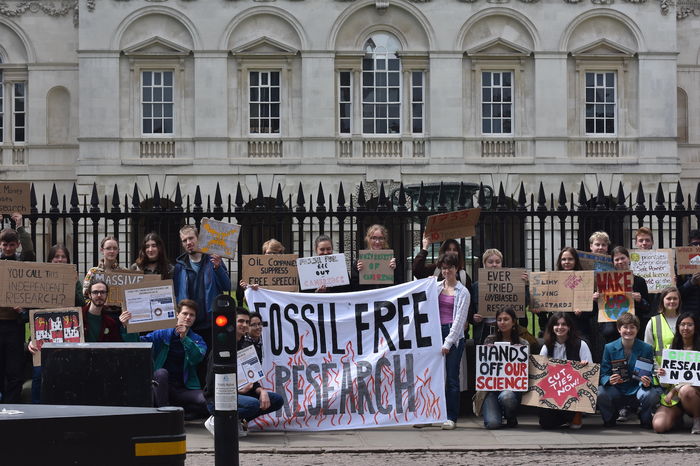University should stop accepting research funding from fossil fuel industry, report finds
Independent report authored by former UN climate champion says accepting BP and Shell funding poses “high reputational risk” to university

Cambridge should stop accepting fossil fuel company funding for research, according to an independent report into the university’s relationship with major polluters.
The inquiry, authored by Nigel Topping, former UN climate champion for COP26, said that companies like BP and Shell are not aligned with the university’s decarbonisation ambitions “on any level”, and that accepting funding poses “high reputational risk”.
Since 2016, Cambridge has received £19.7m in research funding and philanthropic donations from Shell and BP.
The existing system that the university uses to scrutinise ethics of associating with companies like these, which has been in place since 2018, was found to “lack clarity and transparency”. As a response, the Topping enquiry recommended that future criteria be made publicly available.
The report comes after 84 academics submitted a grace proposal to the university’s democratic governing body, the Regent House. The report advocated for the termination of funding ties to companies which are constructing new fossil fuel infrastructure, exploring new fossil fuel reserves, or are members of trade associations involved in “political lobbying against science-based climate legislation”.
Proponents argued research funding from oil and gas companies posed inherent conflict of interest issues that could taint critical research during the green transition. This view has gathered steam at leading higher education institutions, with Princeton University announcing it would stop accepting funding from 90 major polluters last year.
Cambridge’s executive policy-making body, the University Council, blocked the grace from proceeding to a vote amongst academics. Instead, they commissioned Topping’s inquiry to examine all potential impacts.
Cambridge university has a rating system for the energy sector, in which companies are labeled red, amber and green according to how much they align with the university’s climate targets. The Topping report stated that it was “difficult to find the logic” behind the current positioning of Shell, BP, and other major polluters in the “amber” category, and the consequent continued acceptance of their funds.
Alternative strategies were offered, including a £1 billion investment plan in the green transition, and recommendations for the new vice chancellor to lead an initiative establishing strategic partnerships with clean energy majors.
Professor Jason Scott-Warren, member of the University Council and one of the academics who proposed the initial grace, said: “The report is a scathing indictment of the University’s history of taking fossil fuel funding, which has helped to legitimise destructive corporations and has cast doubt on our seriousness in tackling the climate crisis.”
Campaigners from the international ‘Fossil Free Research’ movement, which has challenged polluters funding academic research for several years, expressed disappointment with parts of the report.
The point of contention has arisen around a part of the report which would enable “partially-owned subsidiaries of fossil fuel companies” to still be viewed as “valid partners”.
Sam Gee, a natural sciences student and steering committee member for the Fossil Free Research campaign, described the recommendation as a “loophole” for corporations failing to align with the goals of the Paris agreement.
In response to the report, the university council has established an “informal working group” which will examine the study’s recommendations and consider “whether and how they will be implemented”.
According to reporting in the Financial Times, Cambridge is expected to accept the recommendations.
 News / Colleges charge different rents for the same Castle Street accommodation2 March 2026
News / Colleges charge different rents for the same Castle Street accommodation2 March 2026 News / News in Brief: waterworks, wine woes, and workplace wins 1 March 2026
News / News in Brief: waterworks, wine woes, and workplace wins 1 March 2026 News / Climate activists protest for ‘ethical careers policy’1 March 2026
News / Climate activists protest for ‘ethical careers policy’1 March 2026 News / Angela Merkel among Cambridge honorary degree nominees27 February 2026
News / Angela Merkel among Cambridge honorary degree nominees27 February 2026 News / Private school teacher who lied about Cambridge degree barred from teaching27 February 2026
News / Private school teacher who lied about Cambridge degree barred from teaching27 February 2026










